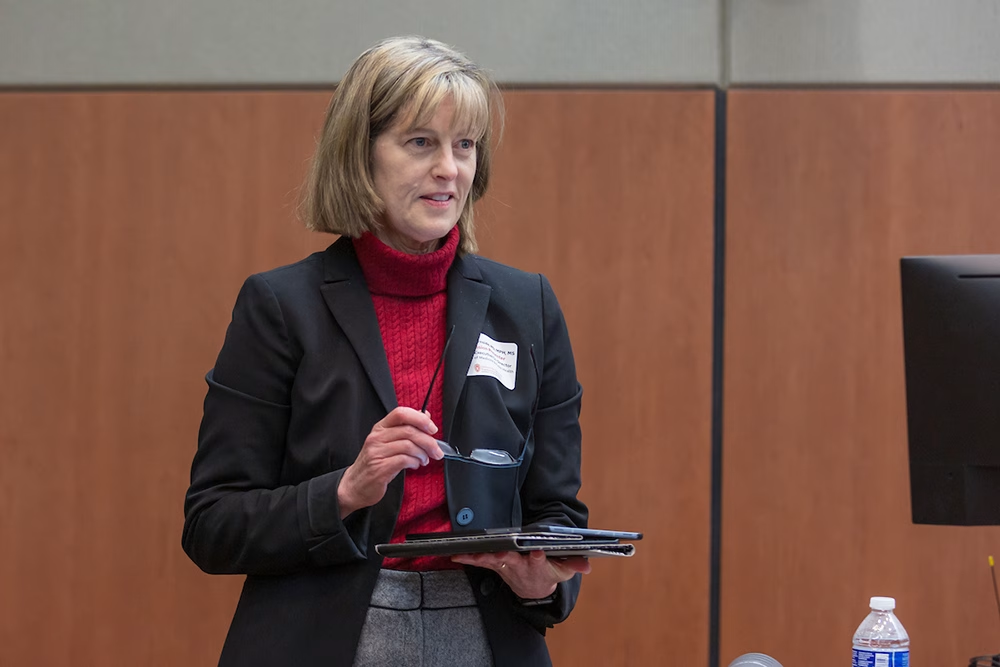ICTR Co-Executive Director Elizabeth (Beth) Burnside, MD, MPH, MS, has been making an impact as a thought leader, both with her radiology peers at a major national conference, and closer to home as she fosters the next generation of physicians and biomedical scientists.
In late November, Dr. Burnside gave a plenary address at the annual meeting of the Radiological Society of North America (RSNA), which drew over 34,000 attendees to Chicago’s McCormick Place. Her presentation focused on “Leading Through Technology: Valuing Artificial and Human Intelligence.”
Burnside characterized biomedical artificial intelligence (AI) as a “wicked problem” (in the sense defined by Nancy Charlotte Roberts in her influential article “Wicked Problems and Network Approaches to Resolution”). She explored how physicians could best harness AI’s potential while avoiding its pitfalls.
She argued that leaders in the biomedical realm will need to confront a host of policy issues and be laser-focused on building trust among all stakeholders.
In a recent survey that she helped conduct, 93% of chairs of academic radiology departments nationwide expressed optimism around AI in general. However, that figure dipped to 86% when it came to generative AI.
Burnside concluded her address by noting that “Leadership is incredibly difficult, especially in times of radical change,” and that leadership does not mean being surrounded by those who agree, but rather seeking out a range of informed, divergent viewpoints.
“We are better when we disagree. We are better when we talk things out and make decisions based on an understanding, a truly human characteristic,” she told RSNA attendees.
You can find online coverage of Dr. Burnside’s plenary address in Imaging Technology News and Healthcare Innovation.
Also in November, Dr. Burnside was awarded the 2023 Group on Women in Medicine & Science (GWIMS) Award for Advancing Women in Science, which honors scholarship or advocacy work that advances women in science. This award was given by the UW-Madison School of Medicine & Public Health chapter of GWIMS.
As Thomas Grist, MD, FACR, noted in his letter of support as Chair of the Department of Radiology, the department worked with her to recompete for the Building Interdisciplinary Research Careers in Women’s Health (BIRCWH) Scholars program, which focuses specifically on helping trainees develop independent research careers. Dr. Burnside is hands-on in providing much of the career training and mentorship herself.
“Throughout all her leadership roles, Beth has excelled at identifying and supporting women in science,” wrote Dr. Grist.
In his letter of support, ICTR Executive Director Allan Brasier, MD, summed up Dr. Burnside’s contributions as both a role model and an advocate over her 22-year career at UW: “As a productive faculty member conducting research that advances the health of women, Beth leads by example. Through her development of team science and leadership training programs, Beth facilitates the careers of others. As PI of training programs, Beth directly supports the careers of UW-Madison women faculty. Through her mentorship of women junior faculty, Beth supports and guides their careers.”
Congratulations, Dr. Burnside, on your GWIMS award!
